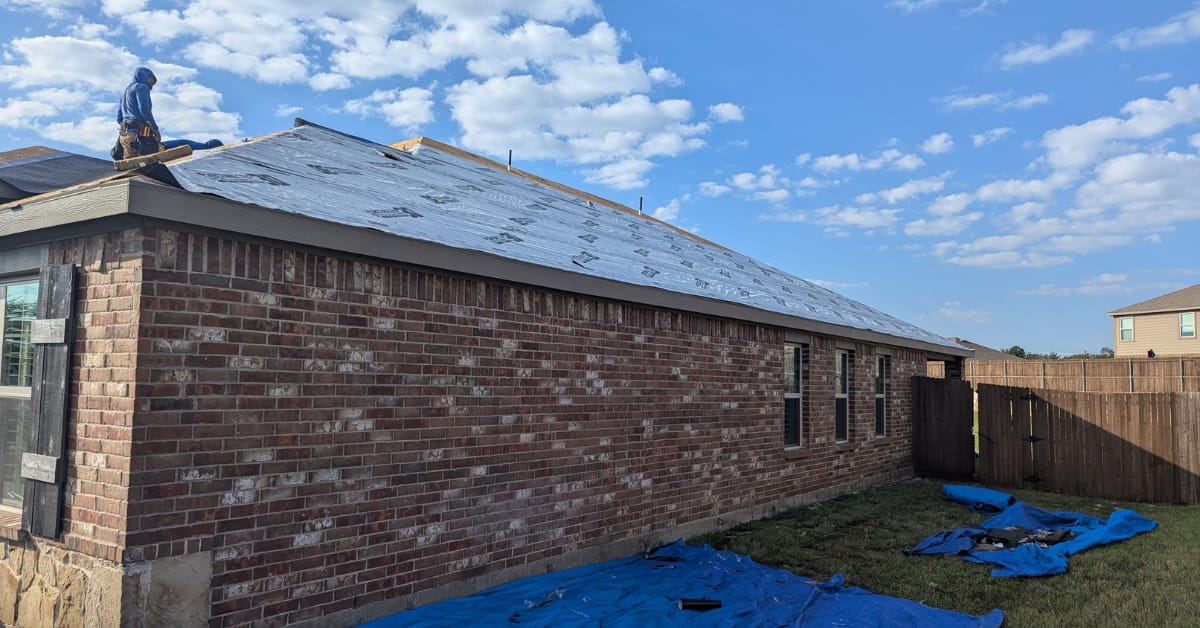-
Warranties make sure consumers get the full value of the product they purchased by fully or partially covering the manufacturer’s defects.
-
Roof packages, such as shingles with additional accessories, often come with full package warranties, but these have unique requirements that must be met to remain covered.
-
Warranties can be denied if these requirements aren’t met, such as using an uncertified installer, trying to use the warranty to cover damage actually caused by poor roof ventilation, or claiming defects that actually come from foot traffic.
Warranties make sure that homeowners get the full value of the product or service that they paid for. For instance, a shingle manufacturer’s warranty will typically cover defects in shingles and accessories. A contractor’s workmanship warranty will fix problems due to inadequate installation. That makes warranties a great perk to consider while upgrading a roof. In this guide, we’ll take a closer look at roofing and contractor warranties, building on the shingle manufacturers we discussed in a previous post.
Warranties Texas Homeowners Should Know
Shingle makers often include a limited warranty for each product line. Typically, the warranty includes complete coverage of any qualifying defect if a problem arises within a certain time period. This would indicate the product was defective, so it’s covered. As the roof ages, coverage is typically prorated. In a state like Texas, where extreme weather will put your roof to the test, finding a dependable product line backed by a warranty is a good idea.
As mentioned in our shingle manufacturers article, brands often create product lines so contractors can buy entire roofing systems from one place. Warranties that extend to these larger packages are a convenient way to get coverage. GAF has System Plus, Silver Pledge, and Golden Pledge. Owens Corning has Preferred and Platinum Protection. And CertainTeed has SureStart PLUS. Some parts of the warranties require installation from a certified contractor. For example, Owens Corning’s Platinum Protection requires installation by a Platinum Preferred Contractor, so it’s important for homeowners to understand the terms of their warranties to get the coverage they expect.
Why Was My Warranty Denied?
- Mixing parts or skipping required components. Some warranties for roofing packages are built around a matched system. If you mix brands or omit required accessories, coverage may be limited or denied. Your warranty will specifically lay out the qualifying accessories and the tiers they support, so make sure you understand the terms.
- Installer and application requirements. Some warranties require specific installation practices or even specific kinds of installers. For instance, Owens Corning’s Platinum Protection warranty lists eligibility items like using the company’s components and following local code, as well as using a program-approved contractor.
- Ventilation and deck issues. Preexisting problems that can damage new shingles may also void a warranty. Poor or unbalanced attic ventilation is a common example. This is especially true in Texas, where extreme heat is common. Most warranties will explicitly require adequate ventilation.
- What counts as a “defect.” Your warranty will be very specific about what is or isn’t considered a product defect. Typically, this covers manufacturing defects that affect performance, indicating that you didn’t get the value you paid for. Damage from storms, foot traffic, or other outside causes isn’t a manufacturing defect. This will be clearly spelled out in your warranty, so read it carefully.
- Keep your paperwork. Enhanced packages often require registration and proof of eligible components. Save invoices that list the exact shingle model and accessories, plus photos of key steps.
We’re Here to Help
Need more information? If you have any questions or need assistance with damage, contact DFW Roofers at (469) 751-4018 or schedule an appointment through our online appointment form.


